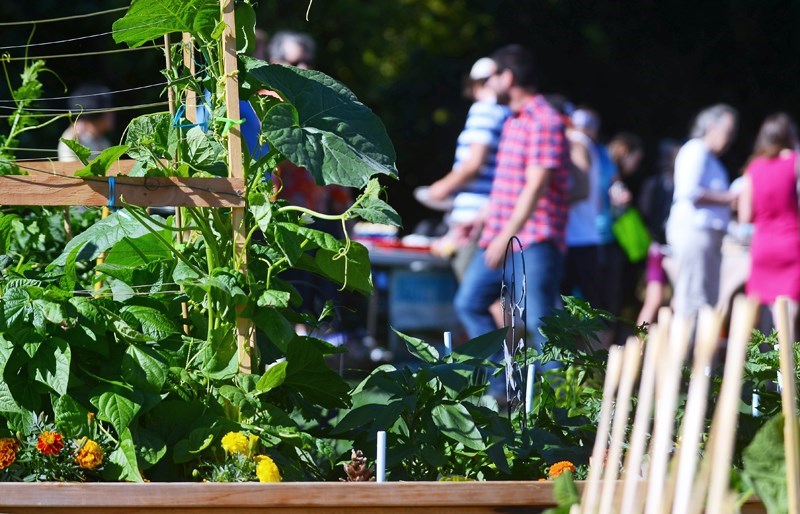New Westminster is digging into the idea of growing food – and community connections – through urban gardening initiatives like boulevard gardens.
At its Aug. 30 meeting, council unanimously supported an urban farming motion put forward by Coun. Nadine Nakagawa to have the city create and implement policy to support and encourage the climate crisis equivalent of victory gardens, with these gardens to include forest gardens and orchards, pollinator pastures/bee hotels, compost systems, foraging opportunities and rainwater harvesting. The city will consider underutilized spaces such as boulevards, industrial rooftops, multi-family common areas and conversion of street space.
Nakagawa said the parks and recreation department is already working on initiatives as part of the city’s food security plan, but she believes that needs to be bumped up in priority.
“With the impending climate impacts, we are going to have a lot more food-insecure people,” she said. “Beyond all that, the bigger opportunity here is actually community-building spaces and lots of different spaces.”
Nakagawa said her Brow of the Hill apartment building is an example of a place where a boulevard could provide space for gardening and opportunities for residents to meet their neighbours.
“That’s my larger goal of all of this – to try and actually bring people together, particularly in the high-density neighbourhoods,” she said. “We know that, particularly in the Brow of the Hill, there’s a lot of these very large front lawns in front of apartment buildings that are not used. I never see anyone sitting on them, I never see anyone using them, and they’d be a perfect place to grow things, to grow plants and food and bushes and all sorts of stuff like that.”
The motion stated the climate crisis will continue to impact food security in the community and noted that not all community members have access to space to grow their own foods. Other components of the motion include:
*Creating policy on and exploring ways to incentivize front-yard and boulevard gardens, with special consideration for condo and apartment buildings in high-density neighbourhoods. This would consider where they would be appropriate and take into account other needs, such as accessibility and tree planting.
*Exploring ways to support and incentivize container gardening in areas where it isn’t possible to garden at street level, such as offering a starter plant sale for multi-family housing that’s similar to the city’s annual tree sale.
*Engaging the community and providing learning opportunities through new and existing programs, such as the hanging basket classes and the Queen’s Park petting farm transition.
*Incorporating indigenous plant knowledge and principles of Indigenous land stewardship
“This provides an opportunity for the city to come together to grow food, to share food and to learn more about our natural environment together as we head into the climate crisis,” Nakagawa said.
Council concurs
Coun. Patrick Johnstone noted that every time a new community garden is built in the city, it’s heavily used by the community. He thinks it would be beneficial to have some policy around the issue of urban gardening.
“It’s not just about the food source, it’s not just about creating a garden space, it’s not just about better use of green space – it’s about bringing people in the community together and bringing access to people who maybe don’t have a back yard or a front yard where they can do that kind of thing,” he said.
Mayor Jonathan Cote said he’s looking forward to seeing what staff bring forward for council’s consideration. He said the proposal is consistent with a lot of the city’s goals, particularly those related to climate work.
Cote said it’s been inspiring to see the uptake and participation community gardens, as well as some of the ways residents are using their yard spaces.
“I think is going to be more important as we address these much bigger global issues,” he said.
Follow Theresa McManus on Twitter @TheresaMcManus
Email [email protected]



